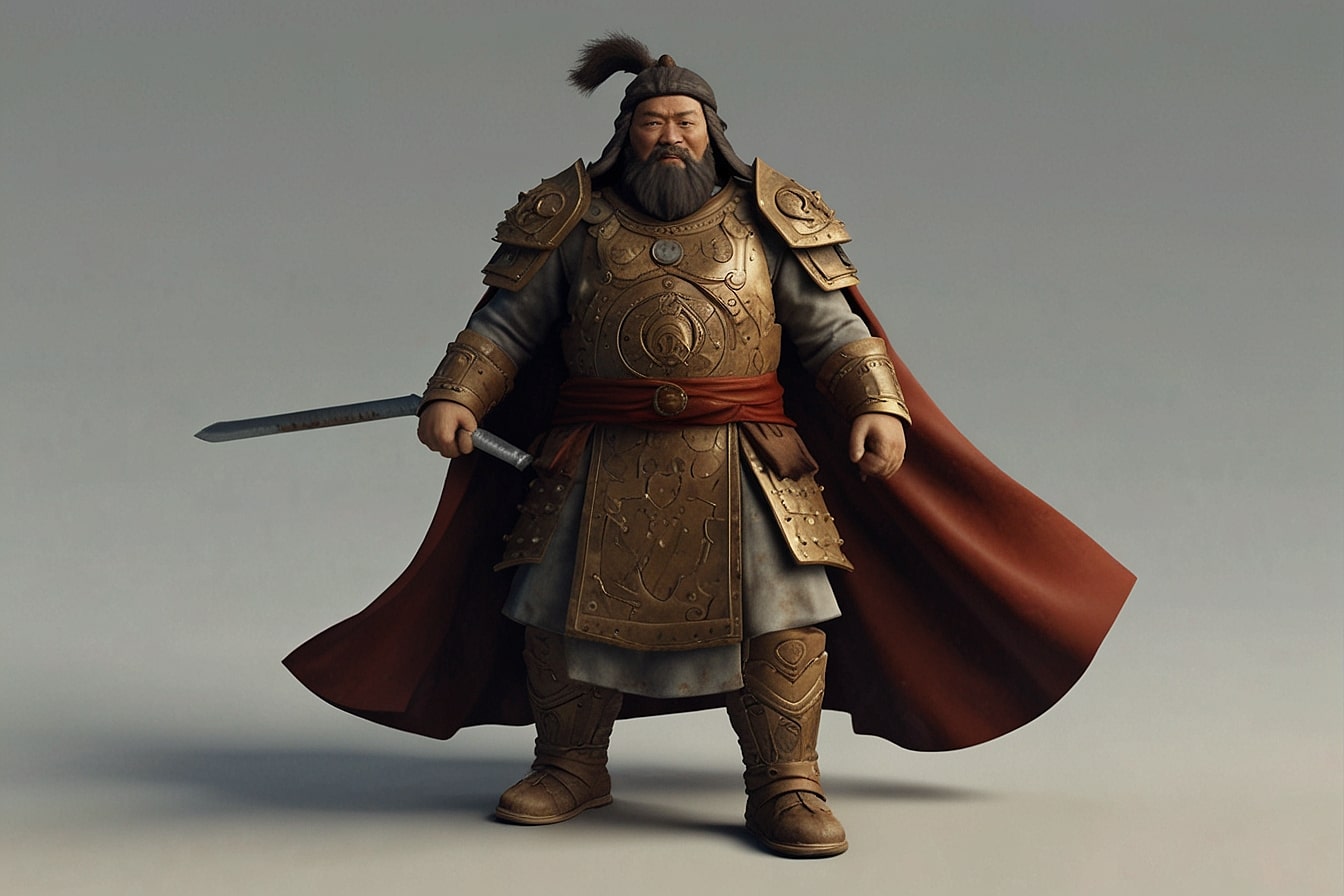
32 interesting facts about Genghis Khan
- 👁️ 294
Genghis Khan, born as Temüjin, is one of history’s most powerful and fascinating figures. Rising from humble beginnings, he founded the Mongol Empire, which became the largest contiguous empire in history following his death. His leadership style, military strategies, and laws significantly influenced the territories he conquered and have been studied by leaders and scholars for centuries. Genghis Khan’s legacy is complex, marked by both his brutal conquests and his contributions to connecting the East and West through the Silk Road. Here are some interesting and informative facts about the life, achievements, and legacy of Genghis Khan.
- Genghis Khan was born around 1162 in a Mongol tribe near the Onon River, what is now Mongolia.
- His birth name, Temüjin, was said to be inspired by a Tatar chieftain that his father had captured.
- He was taken captive by his father’s former allies when he was a boy and spent time as a slave before escaping.
- Genghis Khan united the Mongol tribes under his leadership through alliances and defeating rival tribes.
- He established the Mongol Empire in 1206 after being proclaimed “Genghis Khan,” which means “universal ruler.”
- The Mongol Empire eventually stretched from Eastern Europe to the Sea of Japan, covering vast portions of Siberia, Southeast Asia, the Indian subcontinent, the Iranian Plateau, and the Middle East.
- Genghis Khan introduced the Uyghur script as the Mongol Empire’s writing system.
- He implemented the Yassa, a code of laws that governed the empire’s military, political, and legal systems.
- The Mongol military was known for its horse archers and the mobility of its troops, allowing for rapid and extended campaigns.
- Genghis Khan promoted people based on merit and loyalty rather than aristocratic birth or tribal affiliation.
- He established a network of trade and communication across the Silk Road, which linked Eurasia economically and culturally.
- The empire under Genghis Khan practiced religious tolerance, allowing subjects to practice their religions freely.
- Genghis Khan died in 1227 under mysterious circumstances; some sources claim he fell off his horse, while others suggest he was killed in battle.
- His burial site remains one of history’s great unsolved mysteries, as his body was reportedly buried secretly, and the soldiers who buried him were killed to conceal the location.
- The cause of Genghis Khan’s death varies among sources, with theories including illness, falling off a horse, and being wounded in battle.
- After his death, the Mongol Empire was divided among his sons and grandsons into several khanates, including the Yuan Dynasty in China.
- Genghis Khan is considered a national hero and founding father of Mongolia today.
- His direct descendants ruled vast areas of Asia and Europe for centuries after his death.
- The genetic legacy of Genghis Khan is notable; a 2003 study suggested that he may be the ancestor of 0.5% of the world’s male population.
- Genghis Khan’s conquests are often credited with bringing the Black Death to Europe through trade routes.
- He created one of the first international postal systems within the empire to improve communication across vast distances.
- Genghis Khan’s military tactics included the use of feigned retreats and intelligence gathering through extensive spy networks.
- Despite his reputation for brutality, Genghis Khan also encouraged trade, arts, and culture within his empire.
- He often incorporated defeated soldiers into his own forces, valuing skills and competence over their original allegiances.
- Genghis Khan’s conquests significantly impacted the world’s demographic landscape, with millions perishing during his campaigns.
- His empire facilitated the exchange of ideas, technologies, and goods between the East and West, influencing the Renaissance period.
- The Mongolian language and script were standardized during Genghis Khan’s reign.
- He decreed the protection of the Silk Road merchants and travelers, ensuring the safety of trade routes.
- Genghis Khan’s strategies and policies are studied in military and leadership courses around the world.
- The “Secret History of the Mongols” is the oldest surviving Mongolian literary work and provides significant insight into his life.
- He established a meritocratic society, breaking the traditional feudal system that dominated Mongolian society.
- Genghis Khan managed to conquer more lands in 25 years than the Romans did in 400.
Genghis Khan’s legacy is monumental, encompassing the vast empire he built, his innovative military strategies, and his impact on the course of world history. While his conquests were marked by significant bloodshed and destruction, his rule also laid the groundwork for cultural exchange and connectivity across continents. His ability to unite the Mongol tribes and lead them to conquer nearly half the known world remains one of the most remarkable feats in history. Despite the passage of centuries, the story of Genghis Khan continues to captivate people worldwide, a testament to his enduring influence on human civilization.
Genghis Khan, born as Temüjin, is one of history’s most powerful and fascinating figures. Rising from humble beginnings, he founded the Mongol Empire, which became the largest contiguous empire in history following his death. His leadership style, military strategies, and laws significantly influenced the territories he conquered and have been…